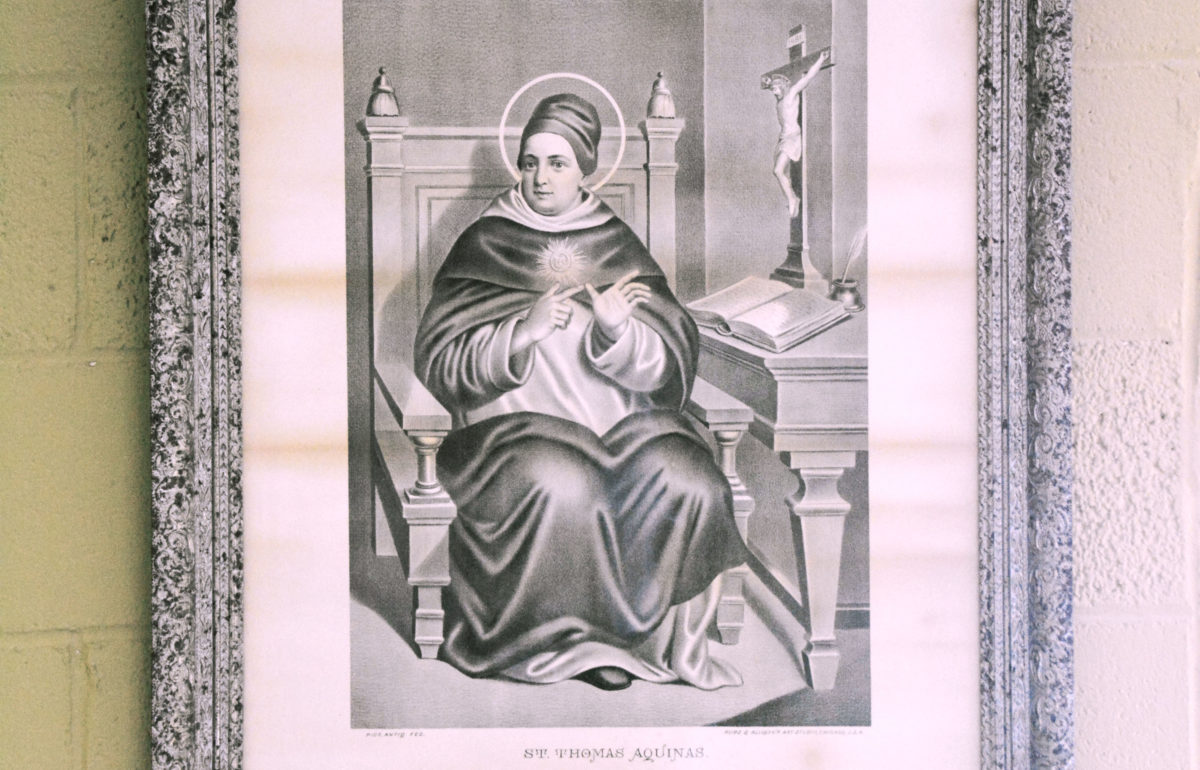The university is named after him, but who is Saint Thomas Aquinas and why does he have a feast day on Jan. 28 anyway?
Saint Thomas Aquinas was born in 1225 in the kingdom of Aquino. He died at the age of 49 in 1274 and was officially declared a saint on July 18, 1323. His feast day is celebrated on January 28. He is the patron saint of all universities and students. He was an Italian priest and doctor of the church. He was also a philosopher known for trying to combine theology, faith, science and knowledge.
Carey Watt, chair of the STU history department, said Saint Thomas Aquinas was ahead of his time, questioning things around him.
“In paintings, people see him as a serious old man, but he was just a young student,” said Watt. “He was unconventional in a good way, a challenger. He asked questions.”
When Saint Thomas grew up, he joined the University of Naples. After discovering materials on the knowledge of the Greeks and the Arabs – considered forbidden at the time – he became critical of the church. He studied the works of Aristotle and Plato and inserted their philosophy into the reality of the Middle Ages.
After learning about Dominicans and their lifestyle, Saint Thomas Aquinas decided to join them by enroling at the University of Paris and leaving behind the aristocratic life he knew. His parents feared he would be away from home too long in a turbulent place like Paris. They locked him in a tower where he was held for a year.
After completing his studies, Saint Thomas Aquinas became the Chair of Theology at the University of Paris and received the title of Angelic Doctor by the church.
According to Rob Vose, medievalist professor at STU, Aquinas tried to combine the Bible with the thoughts of Aristotle. For him, both segments didn’t need to contradict. He made it possible for students to understand both rather than choosing one or another.
“He was one of the most important, fascinating and problematic figures of the entire Middle Ages,” said Vose.
Upon his canonization, there was a lot of debate at the church. Some people were against Aquinas and his teachings, not considering him a saint, but a radical instead.
Matthew Dinan, a history and Great Books professor, said that even beyond philosophy, Saint Thomas Aquinas’ works are essential to people today. Many of his ideals on natural law are included in the United Nations Charter of Human Rights.
“I think we are, to this day, still catching up to him. He was very ahead of his time,” said Dinan.
Saint Thomas Aquinas died of illness on his way to the Council of Lyons on March 7, to discuss the possible schism repair between the Orthodox and the Roman Catholic churches in 1274.
As for the feast, well, his feast day was originally March 7, but the church decided to change the day to Jan. 28 in 1969 because March 7 falls around Lent.

